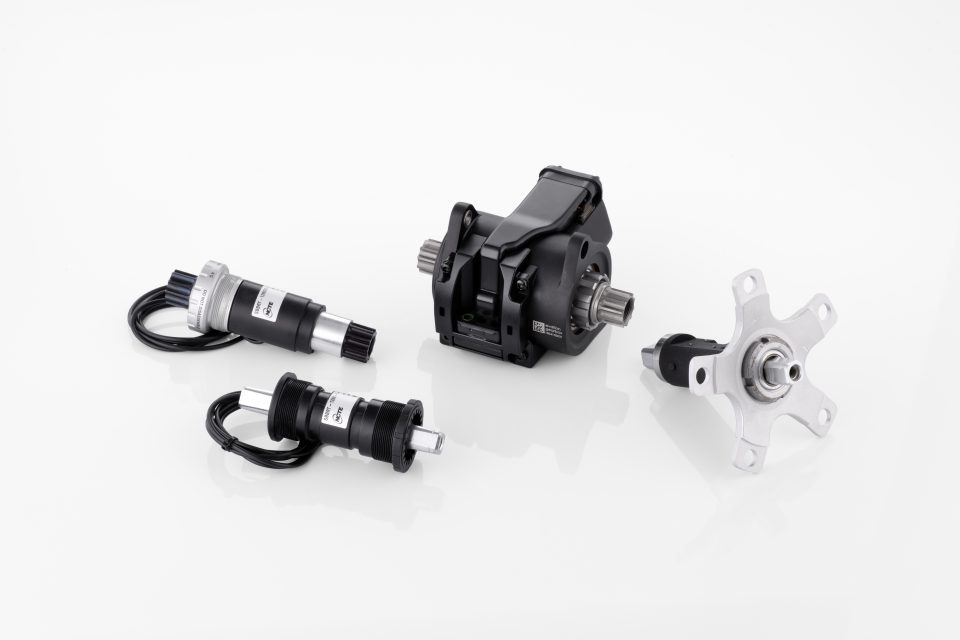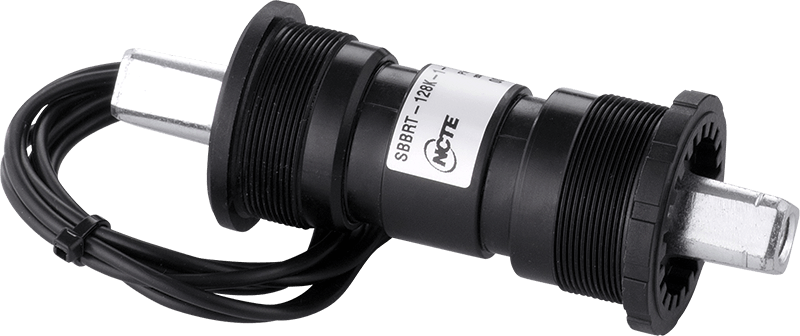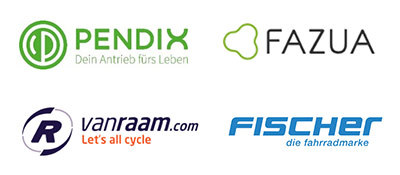E-Bikes


Optimization of the
mid-engine to avoid
jerky driving behavior
mid-engine to avoid
jerky driving behavior
For increased safety,
optimal driving feeling and
Battery longevity
optimal driving feeling and
Battery longevity
Monitoring and optimization
of the e-bike drive
of the e-bike drive

Torque and force:
We measure the power in electric bicycles
How do e-bikes and pedelecs have to perform? They should drive smoothly and harmoniously - regardless of how intensively the driver pedals. If the drive jerks and the e-bike only accelerate with delay, the riding feeling and, thus, the overall impression will suffer. Our torque sensors ensure that electric bicycles are as easy and relaxed to ride as your customers expect them to be.
City, country, mountain –
e-bikes ride everywhere. With our sensors.
Nowadays e-bikes are as versatile as normal bikes, there are models for every area and every taste - no matter if you want to ride in the city, in the mountains or in the woods, want to transport something or need a specially adapted bike. The NCTE technology for electric bicycles works independently of the type: Our sensors are already installed in numerous city bikes, cargo bikes, mountain bikes and special need bikes and help to ensure that these bikes ride harmoniously.
Non-contact, precise, maintenance-free - how our
magnetostrictive technology works in e-bikes
Our sensors measure whether and to what extent the e-biker pedals. We do not only record the pure rotary motion, but also the speed and direction of rotation. How do we do that? Our magnetostrictive method makes the shaft in the e-bike drive the primary sensor. When our technology detects a change in the pedals, it immediately sends the appropriate signal to the drive, which directly supports the pedalling movement of the rider. The advantage of our technology: It works contactless and does not require maintenance.

Small sensors. Great effect.
With e-bikes and pedelecs, any additional weight is annoying because it costs human and battery power. This is why we have developed very compact torque sensors that are particularly space-saving and lightweight. If you want to use our technology, you don't have to change or stick on any components and you don't have to reserve generous space around the shaft in the drive. Right from the start it was important to us that our sensors could be integrated as flexibly and easily as possible into all electric bicycles. That's why our technology works in all e-bike drives - whether in the pedal bearing, mid-engine, hub motor, front or rear wheel drive.
The advantages of our torque sensors for
e-bikes and pedelecs at a glance
- Compliant with DIN EN 15194:2017
- Salt spray test 96 hours DIN EN 60068-2-52:2018 passed
- Simple and intuitive assembly
- Completely maintenance free
- Made in Germany
- No recalibration required
- CE compliant

These sensors we offer for E-Bikes and Pedelecs
Do you want measuring technology for your e-bike and pedelec drives that is particularly flexible and cannot only measure torque, but also speed and direction of rotation? And so do us. This is why we do not only offer torque sensors in large series, but also develop individual sensor solutions for you.
Our Standard Portfolio for
Electric Bicycle Sensors
| Application | Sensor type | Type | Output signal | Product Info |
|---|---|---|---|---|
| Mid- motor | Customized | Integration according to customer requirements | Analogue/Digital CAN-bus I²C UART | |
| Rear motor | Speed | Square ISIS* | Digital or Analogue* | Data Sheet |
| Speed Torque | Square ISIS* | Speed: Digital or Analogue* Torque: Analogue | Data Sheet | |
| Front motor | Speed | Square ISIS* | Digital or Analogue* | Data Sheet |
| Speed Torque | Square ISIS* | Speed: Digital or Analogue* Torque: Analogue | Data Sheet | |
| Front/rear/hub motor | Customized | Integration according to customer requirements | Analogue/Digital CAN-bus I²C UART |
References
NCTE torque sensors are installed in those bikes
We have been working for years with some of the most renowned manufacturers in the e-bike sector. We are proud of this good cooperation - and we are particularly pleased that our technology is used in so many different models: We measure torque and force in e-bikes, pedelecs, s-pedelecs, cargo bikes, special need bikes and other electric bikes.

- Pendix
- Pendix GmbH has developed a retrofit drive that can be used to convert almost any bicycle into an e-bike with electric power. This works with city bikes, but also with trekking bikes, mountain bikes and load bikes. NCTE torque sensors help make retrofitting as easy as possible.
- Fazua
- FAZUA's e-bike drives are particularly slim, lightweight and, above all, perfect for sporting requirements. The special feature: From a speed of 25 km/h the FAZUA drive separates motor and pedal bearing gear. This provides drivers with electrical support, for example when driving uphill or in headwinds. Our measuring sensors are used to ensure that this works smoothly.
- Van Raam
- Van Raam stands for special bicycles such as tandems, tricycles and wheelchair bicycles. The Dutch company also develops customized models and also offers its bikes as electric versions. Van Raam relies on NCTE's measurement technology for both its series-built products and its customized electric bicycles.
- Fischer
- Fischer offers a wide range of e-bikes and develops bicycles for city, trekking and mountain tours. And the sensors? They come from us, of course: We measure torque, direction of rotation and speed in Fischer bikes.
INTEREST IN OUR
SOLUTIONS FOR E-BIKES?
Are you interested in our technology in the e-bike sector?
Contact me directly:
Contact me directly: